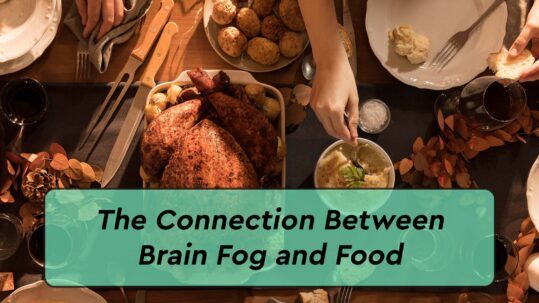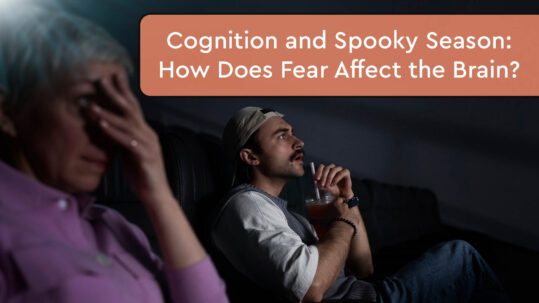Cognition and Spooky Season: How Does Fear Affect the Brain?
The Psychology of Fear
As we roll deeper into the fall season, we start to see Halloween decor, themed events, and scary entertainment pop up all around us. For some, Halloween is a delight. Many look forward to haunted houses, scary movies, and stories to share. While some people enjoy a good scare, others avoid it as much as they can. But, is there a scientific reason behind this? How does fear affect the brain, making it fun for some individuals, yet overwhelming for others?
How Does Fear Affect the Brain?
Fear is one of the most primal human emotions. Following fear-based stimuli, a fight-or-flight response is triggered in the amygdala, the brain’s emotional processing center. This leads to a quick increase in adrenaline and cortisol in the brain, which helps us respond to a potential threat. This may manifest as a faster heart rate, rapid breathing, and overall heightened senses.
However, there are ways to practice a predictable, “safe” scare – and this option is enjoyable to many people! This could include a horror movie, a haunted house attraction, or roller coasters. This is because the brain can detect actual danger verses “faux” danger, causing a dopamine response instead! This rush of chemicals can create big feelings of excitement and elation… leading many to consider fear fun.
Why Some People Enjoy Being Scared
People who enjoy fear often experience it as “controlled danger,” which is a way to experience high-intensity emotions without actual risk. Research shows that these individuals may have:
- Higher sensation-seeking tendencies
- A stronger sense of control and regulation over emotions and their environment
- A greater tolerance for uncertainty, which allows them to distinguish excitement from danger more easily
Why Some People Do Not Enjoy Being Scared
For many, even a “safe” experience of fear, such as watching a horror movie, can be highly uncomfortable or even distressing. Factors that may impact this include:
- Higher baseline anxiety levels, causing an overactive fight-or-flight system that is slower to calm down
- Negative past experiences associated with fear or surprise
- Sensory sensitivities causing overwhelm, such as loud noises, flashing lights, and jump scares
- Variations in neural pathways. Some people are more prone to having a more reactive amygdala or lower dopamine release following stress
A Provider’s Perspective
For professionals, teachers and healthcare providers, spooky season is an opportunity to explore self-regulation, self-awareness, and stress responses with their clients. To build on a copying skills toolbox, it is important to discuss the bodily sensations that accompany fear, and how to best manage or reframe it. To assist in building these skills, strengthening cognitive skills like emotional regulation, cognitive flexibliitly, attention and processing skills, can assist in teaching the body how to respond to stress and excitement, whether during “controlled danger” or in daily life.
Final Thoughts
Fear is a universal experience, but how one experiences it can vary greatly. Whether you are someone who enjoys a healthy dose of fear or does not, understanding how fear reveals itself in bodily responses may help you enjoy spooky season a whole lot more.
After all, the best kind of scare is the one that makes you smile when it’s over. 👻
References:
Adolphs R. The biology of fear. Curr Biol. 2013 Jan 21;23(2):R79-93. doi: 10.1016/j.cub.2012.11.055. PMID: 23347946; PMCID: PMC3595162.
Hofmann SG, Ellard KK, Siegle GJ. Neurobiological correlates of cognitions in fear and anxiety: a cognitive-neurobiological information-processing model. Cogn Emot. 2012;26(2):282-99. doi: 10.1080/02699931.2011.579414. Epub 2011 Aug 1. PMID: 21806384; PMCID: PMC3229257.
Northwestern Medicine. (n.d.). 5 things you never knew about fear. https://www.nm.org/healthbeat/healthy-tips/emotional-health/5-things-you-never-knew-about-fear
Psychology Today Staff. (n.d.). Fear. Psychology Today. https://www.psychologytoday.com/us/basics/fear
Yang, H., & Zhang, K. (2021, October 26). The psychology behind Why we love (or hate) horror. Harvard Business Review. https://hbr.org/2021/10/the-psychology-behind-why-we-love-or-hate-horror









